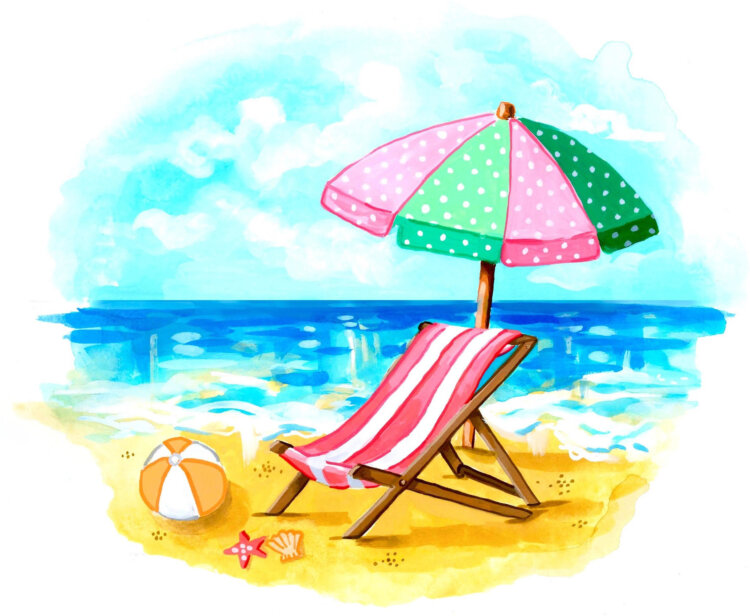
I don’t know about everyone else, but I am a bad vacationer. I’m such a homebody, and I get stressed out and tired when I’m away for too long. Many articles talk about anecdotal evidence as to why travel and vacations make us happier—they open our mind, they cash in on novelty, they take us on a path to self-actualization—but I’m curious whether there is any actual scientific evidence that vacation and travel makes us happier.
Most studies discuss how money spent toward experiences (restaurants, concerts, etc…) rather than material goods (jewelry, a TV, etc…) gives a happiness boost. This is easily applicable to vacations, though looking at vacation-specific studies can give us insight as to how we can increase our happiness during the trip.
So what can you do to make sure you actually do increase your happiness when you travel?
- Plan extensively. A study in 2010 found that unless the vacation was very relaxing, most vacationers were not significantly happier after a trip compared to those who didn’t take a vacation. On the other hand, those who were planning vacations were significantly happier. This group also found that only those whose vacations were “relaxing” or “very relaxing” had a noticeable increase in happiness, too. As a non-planner, this is a daunting suggestion for me, but this accomplishes two things: It, builds up your anticipation for the trip; And, it reduces stress during the trip itself, thereby increasing the likelihood of having a relaxing vacation. Make sure to plan to do things you actually like—no need to force yourself through a museum if you hate them; you’ll just make yourself miserable! But try to incorporate social activities, which will likely increase your satisfaction with your trip.
- Pick the right travel buddies. If you can, go with people who you’d like to spend that time with. The two factors that affect happiness during the vacation itself are travel companions and holiday stress. Holiday stress definitely affects your happiness more—something you can mitigate if you plan ahead of time!—but choosing your travel companions is still an important consideration. If you can go with your partner, the increase in conversation time and the quality of your conversations can actually add to your enjoyment overall, both during and after the trip.
- Picture “perfect.” Here is one suggestion that makes me cringe: take pictures. I’ll admit that whenever my mother-in-law sits down to show me pictures from her trip to visit family in Bolivia, or from seeing my husband’s brothers, I get very bored, very quickly. Maybe she derives a lot of enjoyment from this, but I always dread whenever she brings them up. As someone who doesn’t take a lot of photos and only shares the ones I do take with my husband, I wonder if this is just me, or whether others are like this, too.The evidence out there might not give me an answer to that, but it does suggest that taking pictures where you document the experience for yourself, not for others, will increase your happiness. Research shows that if you even have the goal of sharing your pictures while you’re taking them, you’ll not only take less authentic pictures, but you’ll also enjoy the moment less and even recall it differently later. So take the pictures and go through them when you come home to extend the vacation experience. And if you do want to show your pictures with others, just consider who you’re you’re sharing them with. A group from Cornell University found that discussing your experiential purchases—in our case, a vacation—with someone who has undergone the same experience increases social connectedness and feelings of kinship. Since there is inherent privilege in taking a vacation in the first place, maybe the easiest way is for you to relive your experiences with whoever you went with. And if you went with your partner, it might bring back those feelings of closeness from the trip itself!
- Be able to look back and laugh (someday!). If something bad happens during your vacation, turn it into a story later. Positive psychology research has shown that the narratives we build can directly impact our happiness, and so turning the bad into something funny or enlightening can help alleviate its impact later. Furthermore, one study found that even though bad experiences are unpleasant in the moment, those feelings are short-lived and you’ll remember the trip as positive overall, including that experience. Even if it’s hard in the moment, keep in mind that you’ll feel better about it afterward.
- Unplug. Finally, unplug from work when you go. Researchers speculate that one reason why your post-vacation boost fades so quickly is that you resume your everyday life—including work. When you’re on vacation, don’t automatically check in with what’s going on back home each night, when your activities are done; you’ll actually be less satisfied with what you did that day!


Grok Nation Comment Policy
We welcome thoughtful, grokky comments—keep your negativity and spam to yourself. Please read our Comment Policy before commenting.